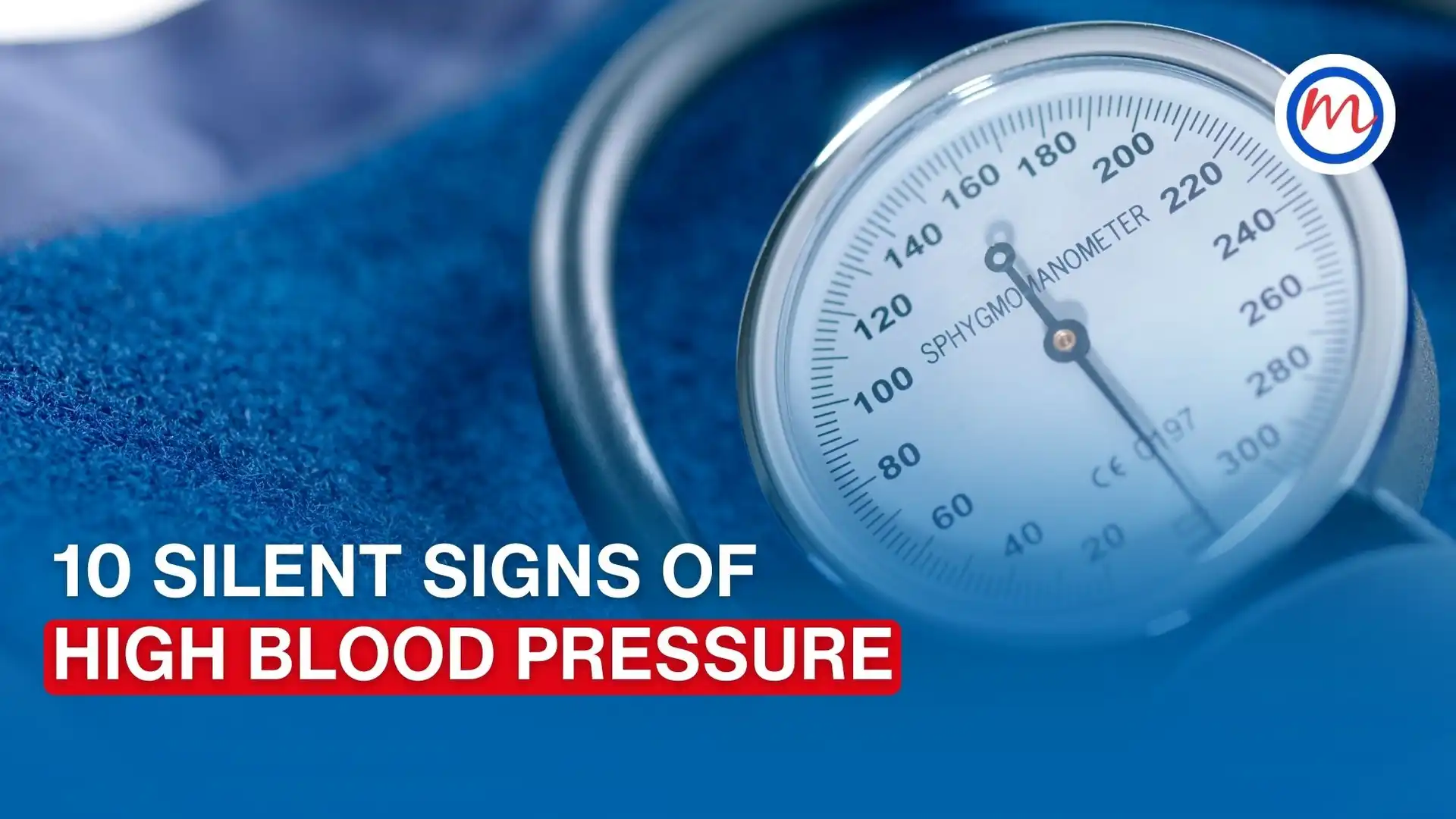10 SILENT SIGNS OF HIGH BLOOD PRESSURE YOU SHOULDN’T IGNORE
High blood pressure, or hypertension, is often called the “silent killer” because many people don’t realise they have it until complications arise. However, there are some subtle symptoms that may act as warning signals. Recognising these signs early can help prevent serious health problems like stroke, heart attack and kidney disease.
Here are 10 silent signs you shouldn’t ignore:
- Frequent Headaches
Persistent headaches, especially in the morning, may be linked to high blood pressure. When the pressure in your blood vessels rises, it can increase tension in the head and neck, leading to dull or throbbing pain. Although not all headaches are caused by hypertension, unexplained and recurring ones should raise concern. Ignoring this sign can delay diagnosis and worsen cardiovascular risk.
- Blurred Vision or Eye Problems
High blood pressure can damage the blood vessels in the retina, which is responsible for vision. This condition, called hypertensive retinopathy, can cause blurred vision, double vision, or even sudden vision loss in severe cases. Some people may also notice floaters or eye strain. Because eye damage is progressive, regular eye check-ups are essential for people with high blood pressure.
- Shortness of Breath
High blood pressure makes the heart work harder to pump blood, which can eventually weaken the heart muscle eventually. This reduced efficiency may cause difficulty breathing, even during light activity or rest. Shortness of breath can also be a sign of fluid buildup in the lungs due to hypertension-related heart problems. It should not be ignored as it is an early sign of heart failure.
- Chest Pain or Pressure
Chest pain is one of the most alarming symptoms associated with high blood pressure. The increased pressure can reduce blood flow to the heart muscle, causing tightness, heaviness, or pain known as angina. In some cases, this could be a warning sign of an impending heart attack. Any chest pain linked with hypertension is a medical emergency and requires immediate attention.
- Irregular Heartbeat (Palpitations)
People with hypertension may feel their heart beats faster (tachycardia). This irregular heartbeat occurs when high blood pressure puts strain on the heart and alters its normal rhythm. Over time, this can increase the risk of arrhythmias, which can be dangerous if left untreated.
- Fatigue and Confusion
When blood pressure remains uncontrolled, it can impair blood flow to the brain and muscles. This leads to a lack of oxygen and nutrients, causing fatigue, weakness, or difficulty concentrating. Some people may also feel mentally foggy or confused, which can interfere with daily activities. These subtle signs often go unnoticed but may indicate poor circulation due to hypertension.
- Nosebleeds
Frequent or unexplained nosebleeds may be linked to spikes in blood pressure. While most nosebleeds are harmless, recurring ones without any obvious cause should not be ignored. They may be a warning sign of uncontrolled hypertension that needs medical evaluation.
- Dizziness or Balance Problems
Dizziness or lightheadedness can occur when high blood pressure interferes with the normal blood supply to the brain. Some people may feel unsteady, have trouble walking, or experience sudden vertigo. While dizziness can result from many conditions, in hypertensive patients, it may signal risk of stroke or serious cardiovascular events.
- Ringing in the Ears (Tinnitus)
A whooshing or ringing sound in the ears is sometimes reported by people with hypertension. This happens due to changes in blood flow in the delicate ear vessels. Although tinnitus can also result from ear problems, in hypertensive individuals, it can reflect poor vascular health. Persistent tinnitus should be discussed with a healthcare professional.
- Swelling in Ankles or Legs
Uncontrolled high blood pressure can weaken the heart and kidneys, leading to fluid retention in the lower body. This results in oedema of the ankles, feet, or legs. If swelling is persistent or worsening, medical attention is necessary.
Silent Signs of High Blood Pressure
| Silent Sign | Why It Happens |
| Frequent Headaches | Increased pressure in the brain’s blood vessels |
| Blurred Vision | Damage to eye blood vessels (retinopathy) |
| Shortness of Breath | Heart strain, poor oxygen circulation |
| Chest Pain | Reduced blood supply to the heart |
| Irregular Heartbeat | Hypertension affects the heart rhythm |
| Fatigue/Confusion | Poor blood and oxygen delivery |
| Nosebleeds | Sudden spikes in blood pressure |
| Dizziness/Balance Issues | Reduced brain blood flow |
| Ringing in the Ears | Altered blood flow in vessels near the ears |
| Swelling in Ankles/Legs | Heart and kidney strain, causing fluid buildup |



